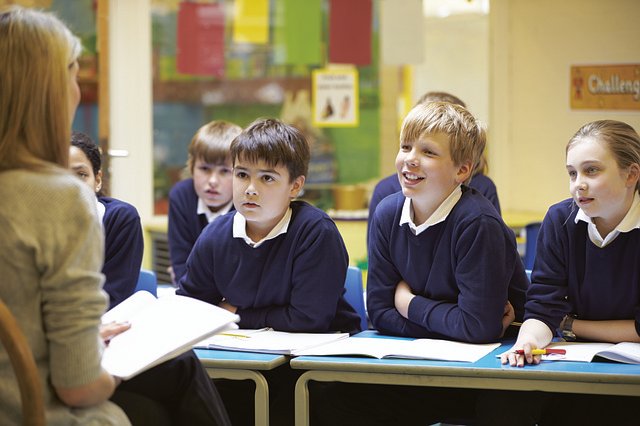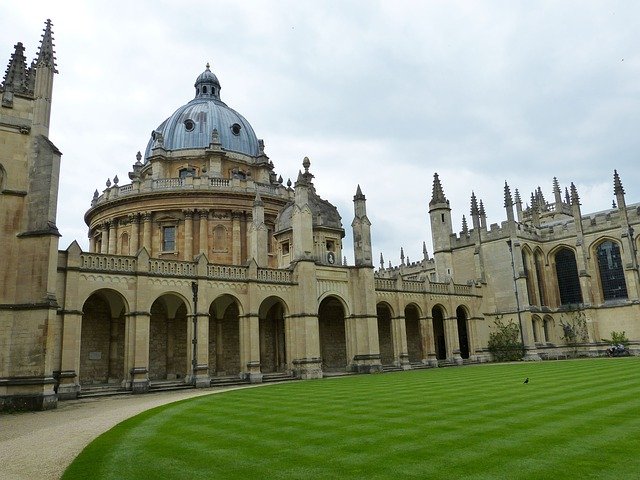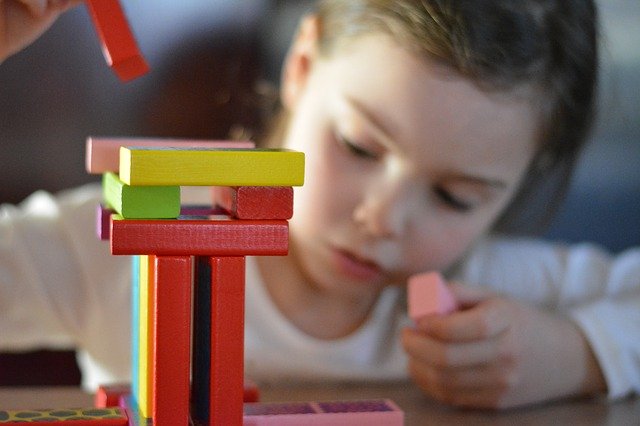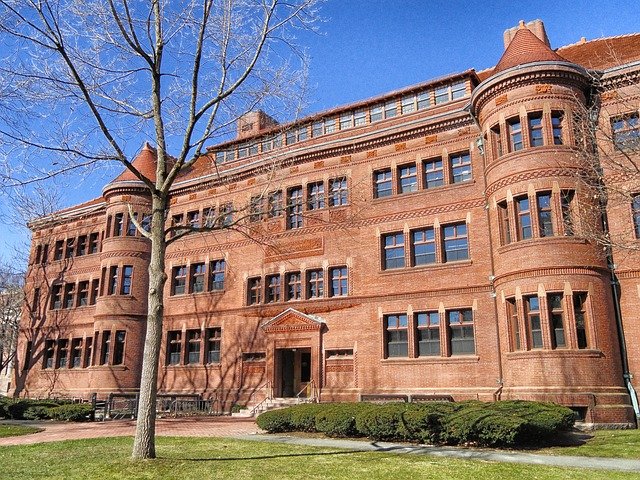
The French education system we know nowadays has pros and cons. It evolved through history, it was before restricted to the elite and later the main aim was to give access to education to a large number of French people. From the beginning of the French Revolution (1789), education began to be a priority. It is under Napoleon Bonaparte that the first high schools (“les lycées” in French) were founded. One of the first reforms of the education system is from Napoleon I in 1806, with the creation of the first French university, l’Université Impériale. Later, at the end of the XIX century (à la fin du XIXème siècle), Jules Ferry, a minister introduced the Jules Ferry law which made school attendance: free, compulsory and laic. Another important reform in the French education history is after the revolt of May 1968 (a revolt from students due to the lack of modernity, a very high number of pupils in the classrooms due to the lack of premises), the universities have a certain autonomy and there is a democratization of the public administration. Let’s see together the French education system with the pros and cons.
A French singer, France Gall, sang “Sacré Charlemagne” (1972) about this crazy idea of creating school.
You might want to know more about the French Revolution to understand further
French education system implemented by the French government: pros and cons
Firstly, let’s take a look at the French education system pros before discussing the cons.
Why is the French education system good?
Free education
One of the biggest advantages of education in France is that it is free for public primary schools and secondary schools, they are state schools. Private schools also exist, (les écoles privées) these are catholic schools and not free. The faculties in France are public and you require to pay a tuition fees but it is really cheap. In 2016, the government allocated 149.9 billion euros from taxes for the education system.
In France, education is compulsory from the age of three to sixteen years old. Starting at an early age is a French education system pros or cons?
The school years continue at “L’école Primaire” which is the equivalent to the primary school. Pupils start at the age of six years old. The class structure is:
-From six to seven, the class is called “Cours Préparatoire” (CP).
-From seven to eight, it is called “Cours Elémentaire” (CE1).
-From eight to nine, it is called “Cours Elémentaire” (CE2).
-From nine to ten, it is called “Cours Moyen” (CM1).
-From ten to eleven, it is called “Cours Moyen” (CM2).
“Le collège”, equivalent to the secondary school, has four levels and is for pupils from eleven years old. The different levels are called “la sixième”, “la cinquième”, “la quatrième”, “la troisième”. At the end of these four years, the students take an examination called “le brevet” which is the equivalent to GCSE.
“Le lycée” is the French high school for the last 3 years before joining the higher-education in faculties. The classes are called: “la seconde”, “la première”, “la terminale” and at the end there is an examination called Baccalaureat which is similar to A-level in England.
Fun fact: I remember when I was at school we had to get up when the teacher entered the classroom as a sign of respect and say “hello Madam/Sir” (Bonjour Madame/Monsieur) and then we could sit down.
Discover on my Youtube channel the free content I provide
Learn French for FREE with French Tutoring Fun
Another French education system pros over cons is a unique curriculum for every school.
One curriculum for all
Even if in France we can find public and private schools, they all follow the same curriculum. Private school will choose and hire their own teachers, but that is the only difference as everyone must receive the same education in France. Unfortunately, this is not always the case because each year there is a ranking of the best schools in France according to the marks the students got for the baccalaureat.
The curriculum is decided by the French Ministry of Education. In 2015, the French government voted a reform which lets the schools decide themselves 20% of the curriculum.
In France, there is no school uniform. Children born between the 1st of January and the 31st of December will be in the same grade.
Now we have seen the French education system pros let’s see the cons.
Why is the French education system bad?

Strictly educational and challenging
Because school is free in France, it is based on education mainly. There are no activities since there is not much money to spend on. This is one of the French education system points that could be a pros for some people and a cons for others.
In my opinion, this is a massive disadvantage of the French education system because I firmly believe it has an impact on the development of the kids. Having activities at school such as cooking allows you to learn a lot but in a different way, other activities will allow you to learn sharing with others which you do not do while sitting at a desk listening to the teacher.
Fortunately, parents usually enrol their children in activities either sporting or musical but outside school and therefore an additional cost is required for the parents.
French education is pretty challenging. Children are pushed to get good grades and compliments are very rare. If you are not good enough you will be looked down and teachers will say to your parents “what your kid is going to do in his life?”, “With such bad grades he will never get a decent job”, “your kid does not work enough”. In summary, it is always the fault of the kid because he or she does not “fit in the mould” instead of teachers applying a self-analysis. I think the main issue comes from how the teachers are trained, they often do not have the appropriate skills to deal with kids who have more difficulties.
When I was in “terminal”, the last year of high school, teachers were asking students what we were going to do at the university. To give you a bit of context, I was a student that “fitted in the mould”, I was quiet (extremely shy) and never had any behavioural issues, I was working regularly and hard but barely got the average in my grades despite working a lot. I mentioned to my teachers I wanted to do studies of pharmacy to be a pharmacist. Most of them did not believe in me. I can only recall one teacher who told me that I will succeed. The other teachers clearly told me “they are very hard studies, you will not make it”, “why trying such hard studies considering you could do something easier and much straightforward”. I did not even listen to them because I did not even understand how they could know I would not make it. In the end, I succeeded and got my diploma of Doctor of Pharmacy.
In my opinion, this French education system style is less a pros and rather a cons.
A complicated system
The French education system is known to be quite complicated with different types of examinations and diplomas.
It is common in France to repeat (redoubler) a school-year (une année scolaire) if the student does not have the level to continue further. It is not seen as something negative but rather an opportunity for the kid to reinforce his knowledge (ses connaissances). About 30% of the students will repeat a school-year at least once.
It is from the French high school that the students will take different paths depending on what they would like to do in higher-education. First, they will decide if they want to continue in a lycée général or a lycée professionnel. Until 2020, “le lycée général” had three different branches, either “Scientifique” (S) which focused on physics, chemistry and Science, or “Littéraire” (L) which focused on languages, philosophy and French literature, or “Science Economique” (ES) which focused on economy and sociology.
Since 2018-2019 following a reform from the government, there is a transition to a new organisation of the “voie générale” in high school. The students will prepare the baccalauréat based on the two following criteria:
Continuous control which counts for 40% of the final mark
- 10% for the report card marks from “première” and “terminale”, to value the regular work from the student.
- 30% for a test on subjects in common. Two in “première” and one in “terminale”.
Final test
- French test at the end of “première”.
- Subject of the speciality 1 chosen.
- Subject of the speciality 2 chosen.
- Philosophy at the end of “terminale”.
- A 20-minute oral regarding a project prepared in “ première” and “terminale”.
“Le lycée professionnel” allows students to develop skills in a specific job to prepare for either:
- “CAP” which leads to working life. It exists 200 professional specialities. The preparation lasts two years. There is a 12-16 week internship to reinforce theoretical lessons.
- “Le baccalauréat professionnel” which helps the insertion in working life or to continue studies as a senior technician. It lasts three years.
- “BEP” (le Brevet d’Etudes Professionnels) which is an intermediate diploma leading to “baccalauréat professionnel” but is not mandatory.
You might also be interested by what French people do during their holiday!
French education system compared to other countries
Now we have seen that the French education system has pros and cons, we will compare to the British and American system.
French education system pros and cons vs British

School timetables and lunches
In British primary schools, kids finish one hour earlier than in France. However, they only have one hour lunch against two hours in France. This allows kids and teachers to take the time eating (as you may know, lunches in France is an important moment and we need to take the time) and socializing.
In France in nursery and primary school, kids often have no school on Wednesday or at least half day off.

In England, some kids go to school with their lunch box which contains usually a sandwich and snacks or go to the cafeteria. In France, we have “la cantine”, it is like a cafeteria, parents pay every month an extra money to the school. The food is freshly cooked each day.
The school structure and subjects taken
In England, the nursery school is optional, primary and secondary school however is compulsory from the age of five to sixteen.
Primary school in the UK begins at the age of five to eleven. The year groups level are from Year R (Reception) to Year 6. Then, comes the secondary school which goes from Year 7 to Year 9.
In England, the following subjects are mandatory to take GCSE that they prepare during Year 10 and 11: science, maths and English. On top of that, students will have to choose one subject in each of the following categories:
-A modern foreign language: the most common are French, German and Spanish.
-A humanity subject: history, geography or religious studies.
-An art subject: music, drama, art and design or media studies.
-A technical subject: design and technology, food technology or computer science.
The students have the freedom to choose a bit more their subjects compared to France where it is either science “Scientifique”, literature “Littéraire” or economy “Science Economique”.
Learning style
In the UK, learning is more practical and exploratory ways are rather encouraged. In France, from an early age, we learn by heart: grammar, times tables, and even reciting poems in front of the classroom.
Clothing
In England, there is the school uniform, as I mentioned earlier this is not the case in France. The advantage is that the kids will not be comparing the clothes they wear, there is no social difference. The disadvantages are that it can cost a lot of money for parents with a lower income. Also, with a school uniform kids cannot express themselves, their own personality, who they are to feel good and comfortable.
Learning of foreign languages
In England, primary schools have the responsibility to teach either a modern or ancient foreign language since 2014. It is taught up to one hour a week. In France, a foreign language is taught from the nursery school. The first foreign language taught in France is English.
French school education system pros and cons compared to American

The school structure
The American education system is less focused on examinations.
Most kids enrol at a part-time preschool but the education provided by the state starts at Kindergarten, equivalent to Year 1 in the UK.
Schools are divided into three levels:
-Elementary school: Grade Kindergarten (at the age of 5-6) to Grade 5 (10-11 years old).
-Middle school: Grade 6 (11-12 years old) to Grade 8 (13-14 years old)
-High school: Grade 9 (14-15 years old) to Grade 12 (17-18 years old)
US curriculum
In the US the curriculum is quite general for students to have a wide range of knowledge in many areas. In the last two years of high school, students will have the opportunity to take on other subjects that interest them.
There are no exams like GCSE or A-level like in the UK.
Sport teams and clubs

This is something the French education system is lacking. From high school sports are an important part of the culture. Sports participation has so many advantages. It is a physical activity which should be done regularly but above all, it helps developing teamwork, communication and many more skills.
In American schools there are a wide range of clubs to spend time on their hobbies, such as chess, mathematics and music, whereas activities in France are done outside of school.
French schools abroad
French school network
There are 522 French schools from nursery school to secondary school in 139 countries with 370,000 students in total.
The Ministry of Foreign Affairs coordinates the French school network overseas. Their mission is to spread French culture but also to support French children outside France to ensure a continuity in their education. For the French education system, this is a more a pros than a cons.
To have more information on why you should learn French, check out the article below
Celebrities and French schools
Some celebrities abroad decide to enrol their children in French schools. For instance, in America, Madonna chose Le Lycée Français de New York for her daughter Lourdes. Also, Angelina Jolie’s kids followed the French education system and the school uses the same curriculum as in France.
French schools in foreign countries are popular because it is dynamic, they use an innovative method and it develop the multiculturalism and the excellence. The French education system is therefore seen from other countries with pros rather than cons.
So why not start learning French today?
With a passionate French speaker
||Teaching with unconventional methods: understand to learn better and faster||
||Are you willing to learn French?||
||Are you ambitious?||
||Have you difficulties to express yourself in French?||
(no more fear with me, my English accent is far from perfect ;-))
Error: Contact form not found.
France has a lot of disadvantages in its system when it comes to education but let’s be honest, we are very lucky to have a free education system. In America, students start working life already having tens of thousands of dollars in debt. It cannot be perfect everywhere but some parents found an alternative, “L’école à la maison” (teaching at home). Unlike most people that think school is not mandatory, it is the education which is mandatory. Some parents in France educate their kids at home! Of course, this is supervised and proof of what is being taught must be shown regularly. Does the French education system have less pros than cons to justify teaching from home?
Are you for or against French education system and which one do you prefer? Let me know in the comments your opinion!
A bientôt!